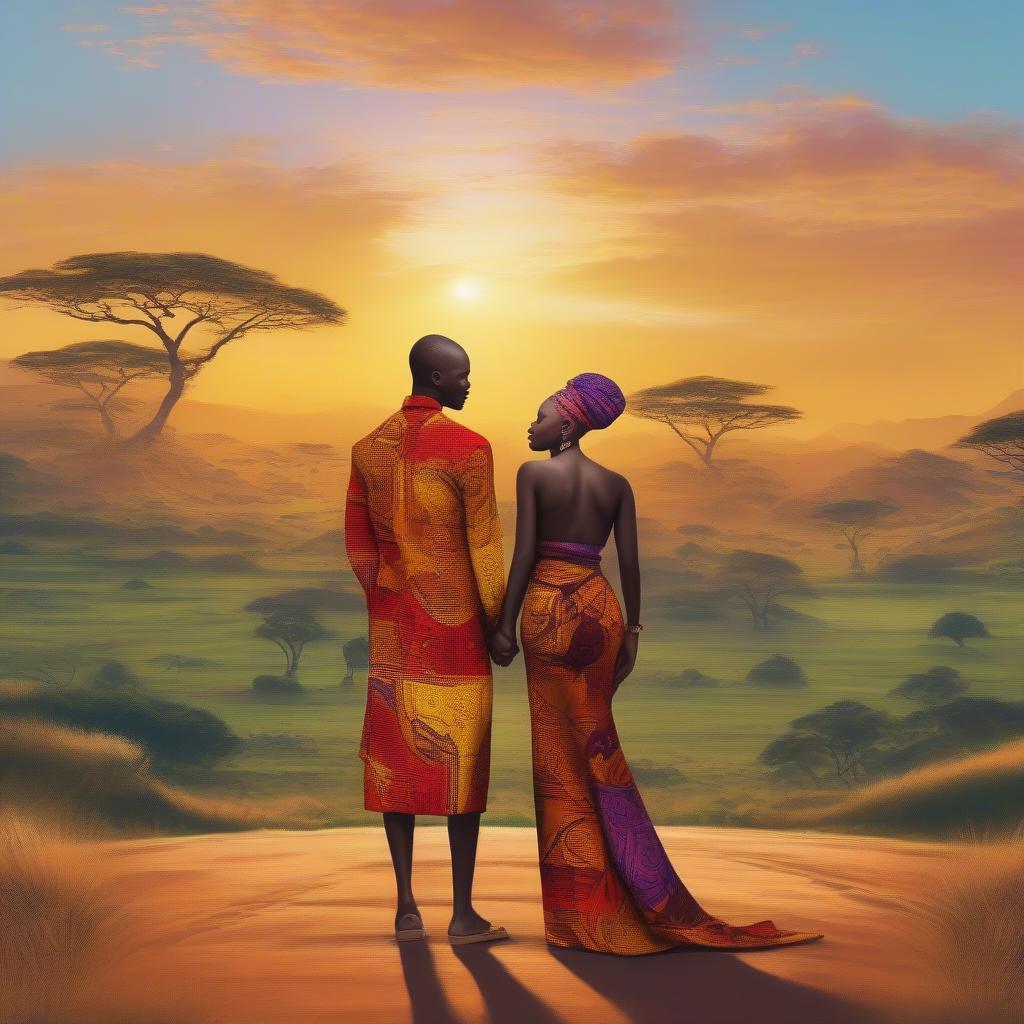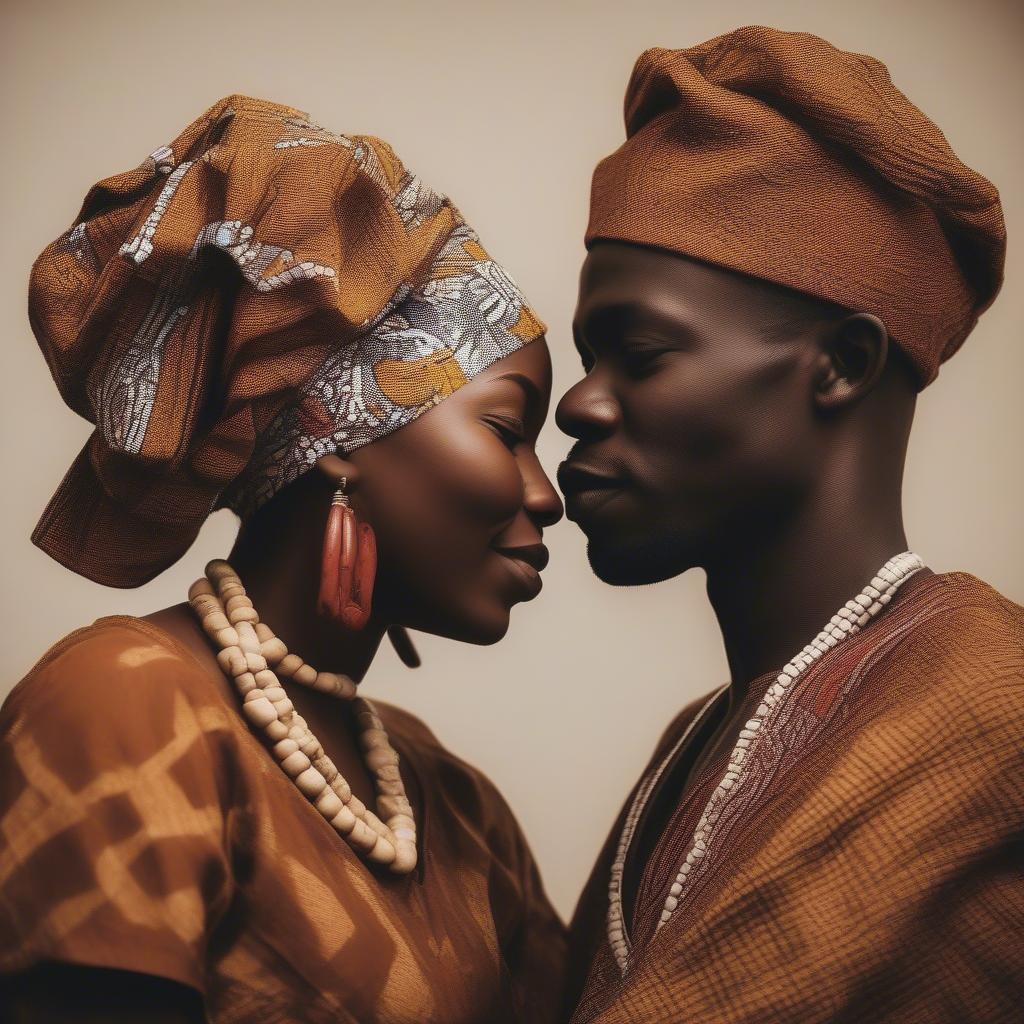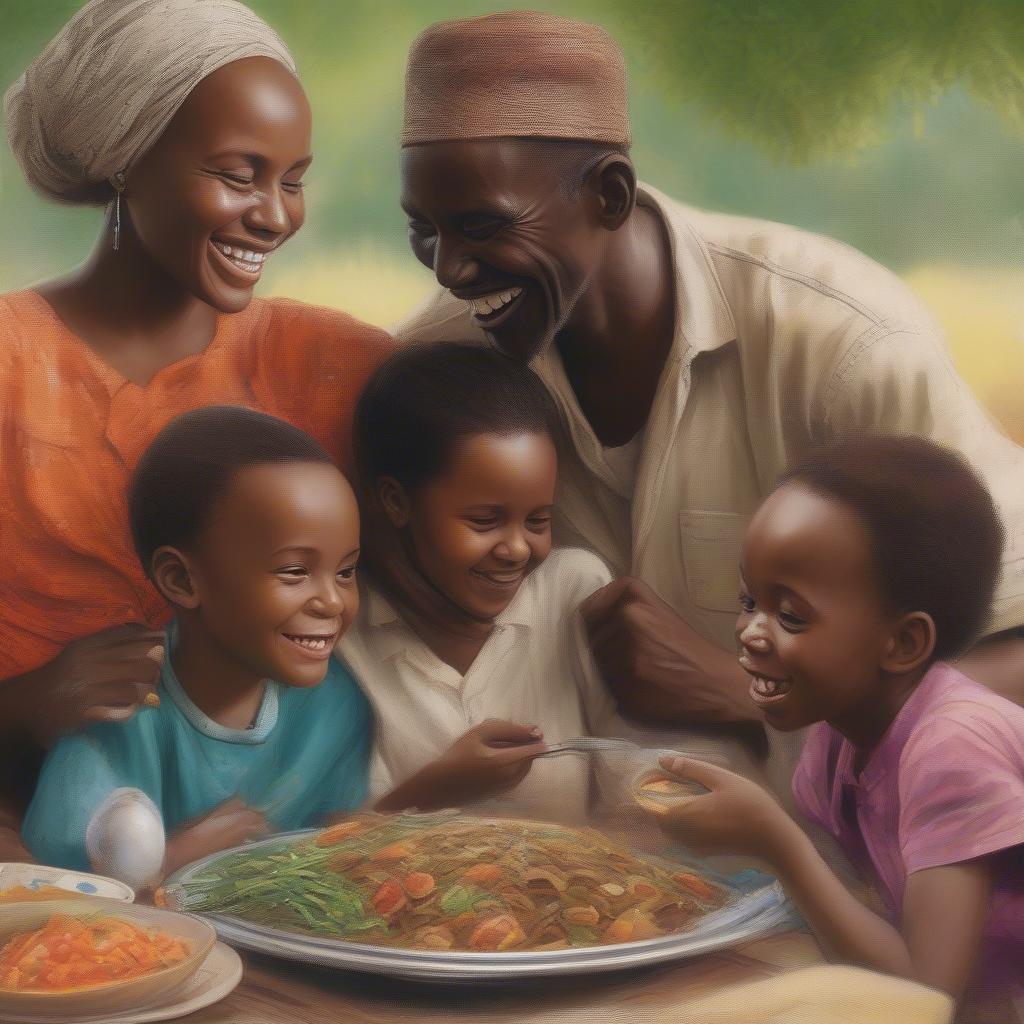Saying “I love you” is a universal human experience, yet its expression takes on unique forms across cultures. In Africa, with its rich tapestry of languages and traditions, declarations of love are as diverse and vibrant as the continent itself. This exploration delves into the fascinating ways “I love you” is conveyed across various African regions, highlighting the cultural nuances and deep-seated emotions behind these powerful words.
Expressing Affection Across Diverse Cultures
Africa boasts over 2,000 languages, and each one has its own unique way of expressing love. While some languages have direct translations for “I love you,” others rely on proverbs, metaphors, and gestures to convey deep affection. Understanding these cultural expressions enriches our appreciation for the complexities of love and communication in the African context.
 Couple expressing love in traditional African attire
Couple expressing love in traditional African attire
North African Declarations of Love
Arabic, a dominant language in North Africa, offers a beautiful and direct translation: “Ana uhibbuka” (أنا أحبك) for males and “Ana uhibbuki” (أنا أحبكِ) for females. Beyond these direct words, expressions of love are often woven into poetry, music, and everyday gestures, reflecting the region’s rich artistic heritage.
Exploring West African Expressions of Love
West Africa’s linguistic diversity brings forth a myriad of ways to say “I love you.” In Yoruba, spoken in Nigeria and Benin, “Mo ni ife re” (pronounced “Mo nee ee-fay ray”) carries deep emotional weight. In Wolof, spoken in Senegal, Gambia, and Mauritania, “Dama la bay” expresses a profound sense of affection. These expressions often reflect a deep connection to family and community.
 West African couple sharing a loving moment
West African couple sharing a loving moment
Beyond Words: Nonverbal Communication of Love
While verbal expressions are essential, nonverbal cues play a significant role in conveying love throughout Africa. Gifts, acts of service, and shared experiences often speak louder than words. For instance, preparing a special meal, helping with household chores, or simply spending quality time together can be powerful demonstrations of love.
East African Love Languages
In Swahili, widely spoken in East Africa, “Nakupenda” is the common way to express love. However, like other African regions, actions often speak louder than words. Gestures of respect, such as offering a seat or helping with tasks, are essential demonstrations of care and affection.
 East African family sharing a meal together
East African family sharing a meal together
The Importance of Understanding Cultural Context
Saying “I love you” in Africa transcends mere translation; it’s about understanding the cultural context and nuances embedded within each expression. This understanding fosters deeper connections and appreciation for the diverse and beautiful ways love is celebrated across the continent. Why do Argentines love tango? It’s a similar exploration of cultural expressions. You can also discover where Love Island is located, deepening your understanding of different cultural contexts. Knowing how to say I love you in Yoruba language or finding out where to watch season 6 of Love Island can offer further insights into diverse expressions of affection and entertainment.
Conclusion
From the romantic whispers of Arabic in North Africa to the heartfelt declarations in West African languages like Yoruba and Wolof, expressing love in Africa is a vibrant tapestry of words, gestures, and cultural nuances. Learning how to say “I love you” in different African languages not only enriches our understanding of the continent’s rich linguistic heritage but also deepens our appreciation for the universal human experience of love.
FAQ
- What is the most common way to say “I love you” in Swahili? (Nakupenda)
- How do North Africans typically express love besides saying “Ana uhibbuka/ki”? (Through poetry, music, and everyday gestures)
- Why are nonverbal cues important in expressing love in Africa? (They often speak louder than words and reflect cultural values)
- Besides verbal expressions, how else is love demonstrated in Africa? (Through gifts, acts of service, and shared experiences)
- Where can I find more information about African cultures? (Consider exploring resources related to why Argentines love tango or where Love Island is located).
If you need further assistance, please contact us via email at contact@daiduongtranhba.com or visit our office at Michigan Ave, Suite 3100, Chicago, IL 60611, USA. Our customer service team is available 24/7.


